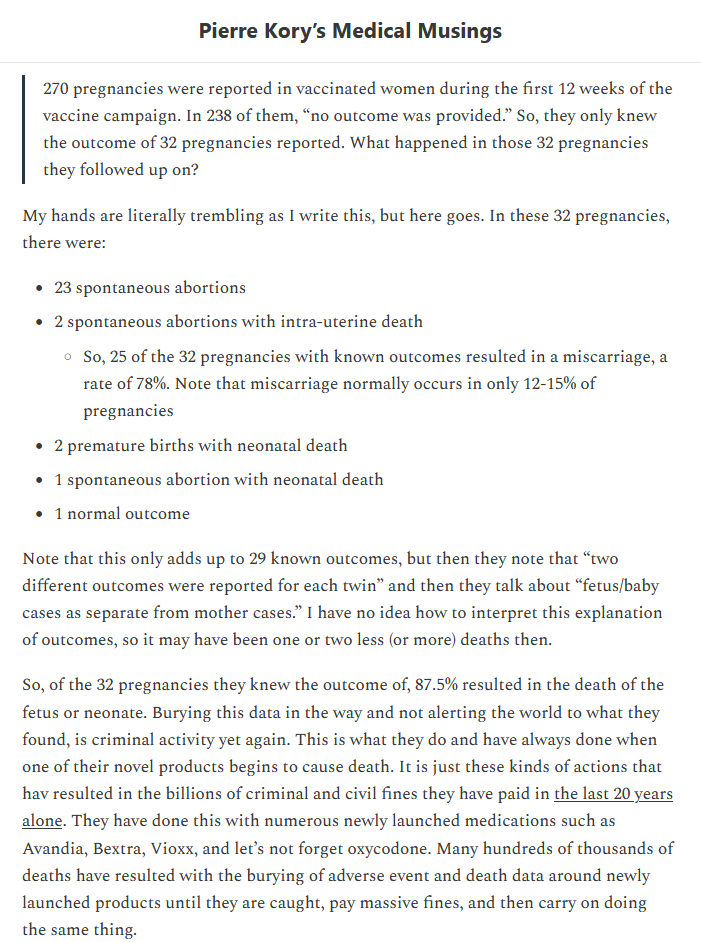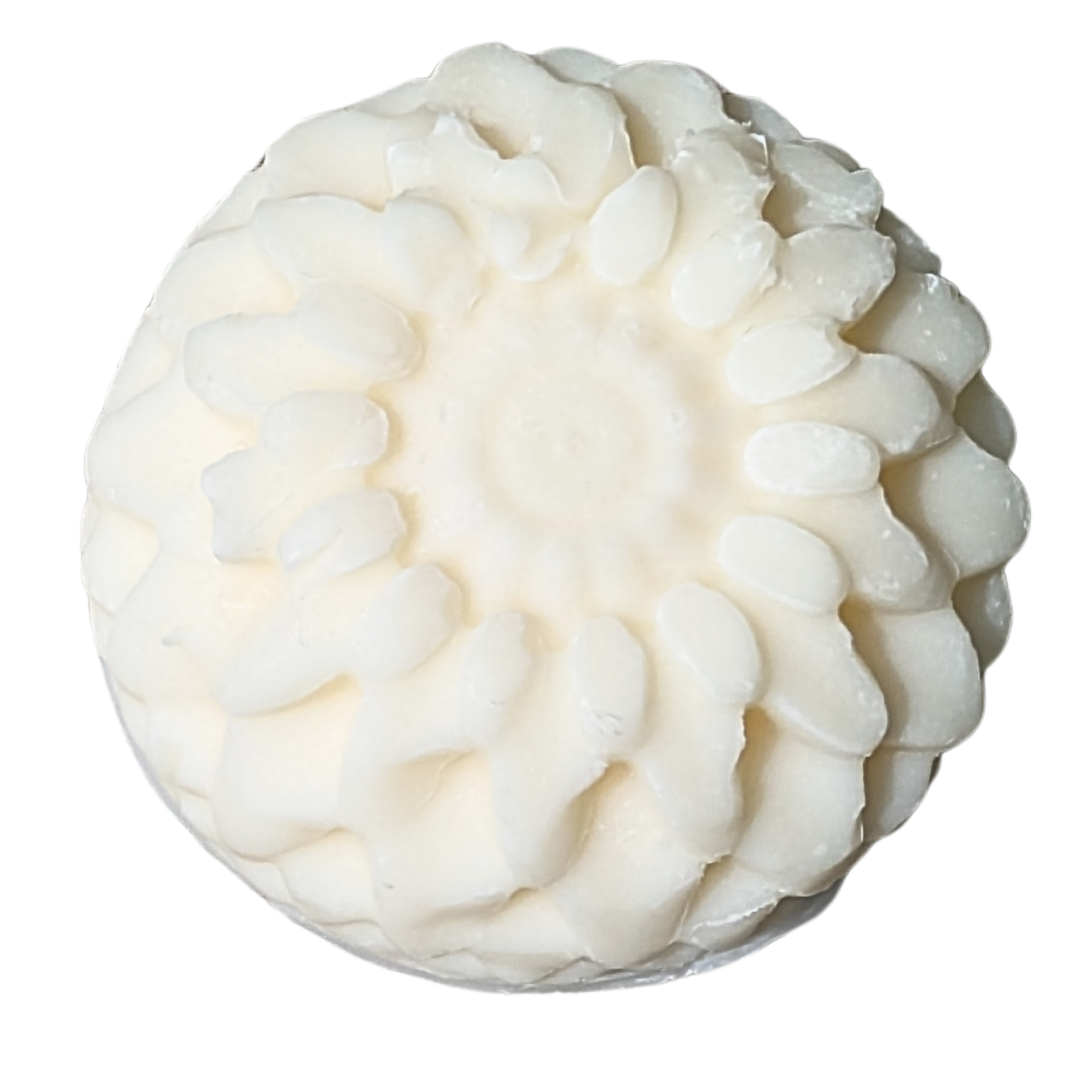Informed Consent: RhoGAM Shot
If you’ve given birth or have a child, you may have heard of the RhoGAM shot (AKA RhoGAM® or Rhophylac®). This shot is offered when a Rh-negative mother could carry an Rh-positive baby, your doctor or midwife will likely recommend the RhoGAM shot to prevent the mother’s immune system from becoming reactive if the baby has a different Rh value blood type.
Sensitization is a real risk during subsequent child births if the mother is exposed to fetal blood in the first birth with a different Rh value (e.g. hemorrhaging during birth), but in my opinion we haven’t been given full informed consent about this shot since 2021, and there are new risks that are not covered by the FDA insert. Before we get into the issue I’m seeing, let’s cover what the RhoGAM shot is so that you can understand the scope of the issue.
First up, if you haven’t already, I highly recommend at least skimming the FDA package insert:
What is the RhoGAM shot?
RhoGAM is a brand of Rh(D) immune globulin (from human blood), concentrated IgG antibodies against the D antigen, given to Rh-negative pregnant women to help prevent sensitization after exposure to Rh-positive fetal red cells. If you were already sensitized to your childs blood without the shot, it cannot undo sensitization once it’s happened. (source: ACOG)
What’s the deal?
Since this product is made from the combination of over 1000 other peoples blood plasma, if you take this injection you are also possibly taking on any medications or pathogens and whatever else that person has ingested, which could also include any mRNA vaccines or boosters they may have had. The FDA insert even discloses this fact, stating that there is a risk of contracting an infectious disease from their product. Here’s a screencap from the FDA insert:
Source: FDA Package Insert for RhoGAM
While the major governing bodies and health agencies don’t view mRNA contaminated blood products as an issue, there also hasn’t been any research done to look into specifically the mRNA contamination issue. We do not know the possible risks that this new genetic therapy may pose in terms of infant and maternal health from the RhoGAM shot. These vaccines have only been used on humans for a few years, so there is no long-term safety data.
Does the RhoGAM shot have mRNA vaccines in it?
Common sense says that the RhoGAM shots could quite possibly contain particles from the COVID vaccines since it was most likely made with blood from vaccinated individuals, and several studies have shown that these particles are widely distributed throughout the body, and that they remain circulating in the body for months or years after the last injection.
No research has been done to determine if these mRNA/spike particles can be found in the RhoGAM shots, and if present, what potential for harm they may be adding, I think that for the time-being, manufacturers should be sourcing their donor plasma from individuals who have never received an mRNA vaccine.
Yale Post-Vaccine Study
There was a study done by Yale recently, that showed that people who were vaccinated with the mRNA COVID-19 vaccines, can still be producing spike proteins from that injection over 700 days after their last shot. The study looked at blood samples from 42 post vaccine syndrome (PVS) cases, and 22 controls. Some participants’ last dose of COVID-19 vaccine was over 700 days before the blood sample was taken. While this study is relatively small, it did include a control group, and the data are reinforced by posts from other PVS survivors online, some still producing spike protein over 1000 days since their last shot.
The problem with this is that spike proteins are highly inflammation-promoting and are linked to the cardiovascular events, amyloid plaques, “turbocancer”, neurodegenerative diseases and autoimmune conditions that have become far more common since 2021. Even without the rise in clotting disorders, chronic levels of high inflammation are extremely dangerous, and as of now there is no cure or widely accepted treatment.
Spike Protein Detox Protocols
There are some reports of supplements people are using to help “detox” the spike proteins (ex: iRecover Protocol from the FLCCC), but these treatments haven’t worked for everyone, and nothing has been shown to eliminate the mRNA source making these proteins. It’s like being in a sinking boat with water pouring in, while you try to remove it with a coffee mug. These protocols can help some people ease short-term symptoms, but does nothing to repair the ‘leak’ of inflammatory spike proteins still being produced. Some doctors are reporting that the mRNA has actually altered/integrated with the human genome, possibly irreversibly.
If we are unable to stop the production of spike proteins in donors, and we are not testing blood donations for these particles, how can we be sure they won’t be present in products made from their blood?
No Off-Switch on the Spike Protein Machine
This research underscores one of the key issues with mRNA technology, which is that there is no off-switch. These inflammatory proteins can, in some people, continue being produced by the mRNA, causing inflammation and wreaking havoc on the body for years. Originally we were also told that these spike proteins would stay at the injection site, but now we are finding these spike proteins all over the body, including in the blood plasma, reproductive system, heart, liver, brain, and even in placenta/cord blood.
If this blood contaminated with mRNA vaccines was used to make a RhoGAM shot (which is possible, considering ~81% of people in the US received at least one mRNA shot, and most conventional doctors are still pushing it despite growing evidence of harms and lack of evidence that it even works), we could speculate that RhoGAM could contain some of these spike proteins and/or mRNA from the donor blood, especially since this is not something currently being screened for with blood donors or tested in the final product. Even if spike and mRNA were something that was screened for, because of the contamination issues we are already aware of with other vaccines (basically viruses are so small, they are impossible to isolate and remove from human/animal-based cell cultures), I personally, would still be hesitant.
Learn more about vaccine contamination in my article on SV40.
Original Vaccine Clinical Trials Issues
Aside from the Yale study mentioned above, there have been other red flag issues with the COVID-19 mRNA vaccine trials. We now know that many of the clinical trials done for these shots were problematic for various reasons. Gratitude to Dr Naomi Wolf and her team for their work on the book The Pfizer Papers: Pfizer’s Crimes Against Humanity which goes into great detail about all the issues with their study design and the shocking and unscientific behavior that was seen from Pfizer during these trials.
For those of you who are unfamiliar with study design principles, basically in order for a study to prove cause and effect, you need to compare two separate populations, and the participants and administrators are supposed to remain “blinded” / ignorant as to which group each participant is in throughout the study. This is because a doctor knowing which group the participant is in, could cause them to ask leading questions or allow their own biases to possibly influence the study in some way. The famous double-slit experiment also showed that humans may have more impact on the results of a study than we even know.
In the context of vaccines, this means that studies are supposed to include a “placebo control group” who are just given saline (and no vaccine), so that we can know of any comparative harms or benefits compared to the group receiving the real vaccine/treatment.
Unfortunately, these requirements were not met for Pfizer’s clinical trials for their COVID-19 vaccine since they unblinded the participants about 2 months in, and thus we do not know if there was a comparative risk or benefit to receiving the shot. This is not the first time Pfizer has manipulated trial data.
Why did Pfizer throw out the placebo group?
This happened because the doctors conducting the study felt it was more unethical to deny the placebo group this “life-saving” vaccine than it was to adhere to the study design. At this time, emergency use authorization had just come through from the US government, allowing Pfizer to start distributing vaccines to the public to help “flatten the curve”.
It’s also worth noting that even if these trials had been conducted according to their design, these shots were not being tested to see if they would stop transmission prior to being released for mass vaccination, per Pfizer’s CEO being questioned under oath.
Fetal Deaths in Vaccinated Mothers + “Lost” Data
The Pfizer COVID-19 trials were a mess, across the board (in my opinion). They warned female participants before starting the trial not to get pregnant, but some women did anyway, after receiving their first dose. Dr Pierre Kory did a very in-depth article about this, and it is actually so horrible to read. Here’s a snippet from his article assessing the data directly from Pfizer’s trials.
Read his full article here: Massive Miscarriage Rates Among Vaccinated Pregnant Women Found Buried In The Pfizer Documents
Why it Matters
The COVID-19 mRNA shots are, in my view, unsafe, as evidenced by the above journal articles, whistleblower testimonies and Pfizer’s own clinical trial data. Most people got at least one of these shots. The Red Cross and other blood donation/banking organizations allow mRNA vaccinated donors do not separate unvaccinated blood from people who have received mRNA vaccines. The blood plasma used to make the RhoGAM shot is no different.
One dose of RhoGAM is made from pooled donor plasma from at least 1000 people. While this plasma is screened for a variety of infectious diseases and they claim no viral disease has ever been documented as having been transmitted from the RhoGAM shot, they mention nothing about COVID-19 mRNA vaccines or spike protein.
For those of us who opted out of taking the mRNA shots, this is a huge issue. We don’t know whether or not spike or mRNA is present in the RhoGAM shot, and the fact that this it is still being recommended without disclosure about the lack of research into this possibility is not only concerning, but also a breach of our rights to informed consent. Informed consent requires that you be informed of all of the potential risks and alternatives, and be given the option to decline any medical treatment without coercion.
Final Thoughts
Ultimately, the decision about whether or not you trust the medical industrial complex in this case is for you alone to make. I can’t tell you what to do, and none of the information in this article is medical advice. I urge you to bring your concerns up with your healthcare provider and see what they have to say about it. Like I said at the beginning of the article, sensitization is a real issue for some women, but also there are anecdotes of women who are Rh- giving birth to 5+ children without any sensitization or issues.
I also often hear of doctors prescribing RhoGAM before even knowing the blood type of the parents (huge red flag🔺). Nearly all medications and vaccines have some risk of reaction and/or side effects, so you should only take them when the benefits very clearly outweigh the risks. If your doctor chooses to recommend this shot blindly without doing blood type testing to assess your risk, why are you trusting them with your health?

















SV40, a polyomavirus once discovered in monkeys and now controversially used in COVID-19 mRNA treatments and gene therapy, has been linked to various cancers in humans. This article critically examines the safety concerns, ethical implications, and regulatory oversights surrounding the use of SV40 in modern genetic therapies.